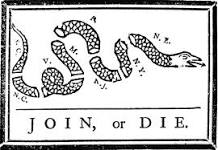°❀⋆.ೃ࿔*:・apush terms quiz °❀⋆.ೃ࿔*:・
1/32
Earn XP
Description and Tags
Name | Mastery | Learn | Test | Matching | Spaced |
|---|
No study sessions yet.
33 Terms
Nathaniel Bacon
Led Bacon’s Rebellion which was an armed rebellion against Virginia’s governor for denying Virginian settlers the right to claim Native American land.
Roger Williams
A Puritan minister who was kicked out of Salem for advocating religious tolerance. After his exile, he founded the colony of Rhode Island
House of Burgesses
The first system of representative government in America, located in Jamestown, Virginia.
Columbian Exchange
A widespread exchange (diseases, ideas, food, crops, population) between the New World and the Old World succeeding Christopher Columbus’s famous journey to America.
Boston Tea Party
A protest against the Tea Act created by the British Parliament. Patriots raided three East India Company ships and dumped $900,000 worth of tea into the harbour.
Annapolis Convention
A regional meeting in Annapolis, Maryland meant to discuss the Articles of Confederation and its inadequacy. Led to the Constitutional Convention.
Albany Plan of Union
A plan suggested by Benjamin Franklin for a unified and more centralized form of government but was rejected because colonial governments believed they would lose power and territorial rights.

Boston Massacre
An aggressive encounter between Boston patriots and British soldiers. Nine soldiers shot into a crowd that was harassing them and killed five people.
Battle of Saratoga
The turning point in the Revolutionary War. Patriot soldiers won against the British and succeeded in capturing 5000 soldiers. This victory led to France agreeing to an alliance with America.
Constitutional Convention
A convention in Philadelphia that discussed the issues with the current form of government (Articles of Confederation) and led to the creation of the Constitution.
Intolerable Acts
Four acts passed by the British Parliament in retaliation to the Boston Tea Party.
Battle of Yorktown
The decisive battle of the Revolutionary War that led to peace negotiations with the British.
Pueblo Revolt
Pueblo natives rebelled against the Spanish conquistadors and drove them out of New Mexico for 12 years.
Articles of Confederation
A written document meant to be the national government of the United States of America until the Constitutional Convention.
Thomas Hooker
An English colonial leader who created the Connecticut Colony after leaving Massachusetts.
Writs of Assistance
A written order that allowed British soldiers to search colonial homes without a good reason.
Proclamation of 1793
A proclamation issued by George Washington in response to the growing war in Europe between France and Great Britain. Declared the nation neutral during the conflict.
Land Ordinance of 1785
Created an organized system of how lands towards the west should be sold and surveyed. Organized settlement patterns.
Stamp Act
Placed taxes on paper products from legal documents to playing cards. Was represented by a stamp on the product.
Jonathan Edwards
An American philosopher who stimulated the Great Awakening and created the famous sermon, “Sinners in the Hands of an Angry God”
Stono Rebellion
A slave revolt that grew violent in South Carolina. Slaves headed towards Florida to the promise of freedom until they were caught and executed. The largest uprising in the colonies.
Federalist Papers
85 essays that argued in support of the Constitution
Judith Sargent Murray
An American writer who spoke out for women’s rights. Advocated for women to gain access to education and control their earnings.
Battle of Bunker Hill
The first real battle of the Revolutionary War. Despite losing the battle, the Patriots proved they can stand up to the British.
Indentured Servants
A form of labor where a person is contracted to work for a specific amount of time without pay.
George Grenville
The Prime Minister of Britain who passed many of the acts that caused tensions between the colonists and the English.
Shay’s Rebellion
A violent uprising in Massachusetts due to the monetary debt crisis America was in after the Revolutionary War. Was in opposition to high taxes and strict economic rules. Led by Daniel Shays.
Tea Act
Provided aid for the East India Company by getting rid of the taxes placed on the tea, causing it to be cheaper than smuggled tea.
Northwest Ordinance of 1787
Established a system on the creation of new states and promised that new states would be equal to the original thirteen.
Mercantilism
An economic system that is based on government regulation. Meant to increase exports and decrease imports. (for example: gaining raw materials from colonies (not counted as imports) to create products and sell them)
Pilgrims
English settlers who settled in Plymouth, Massachusetts. They sought religious freedom in America because they were Puritans.
Thomas Jefferson
An American statesman who helped write the Declaration of Independence and became the nation’s third president.
Salutary Neglect
A lenient British policy where the British government did not focus on or pay much attention to the American colonies.